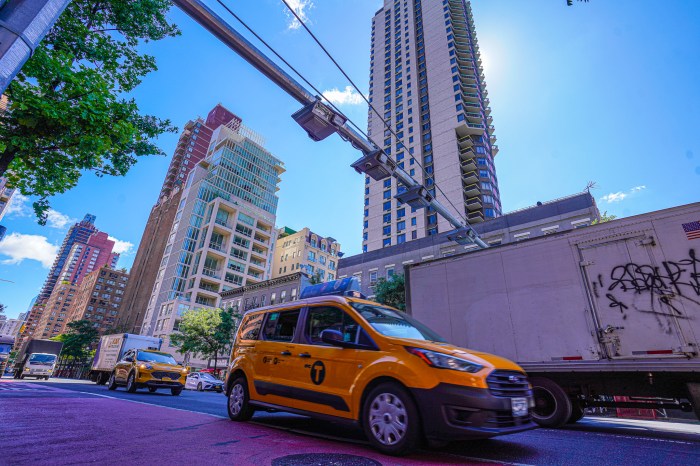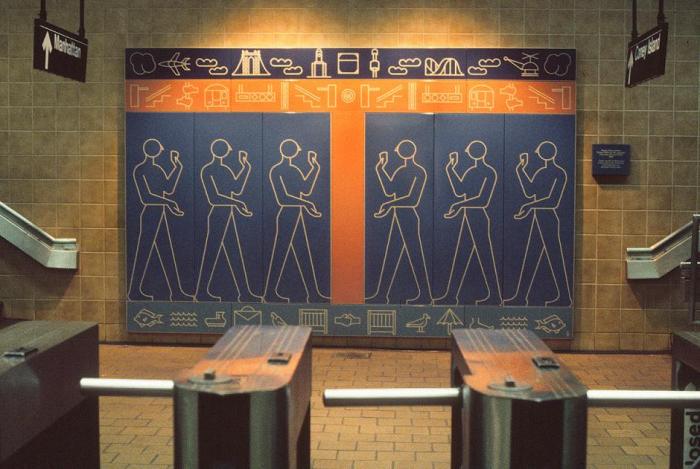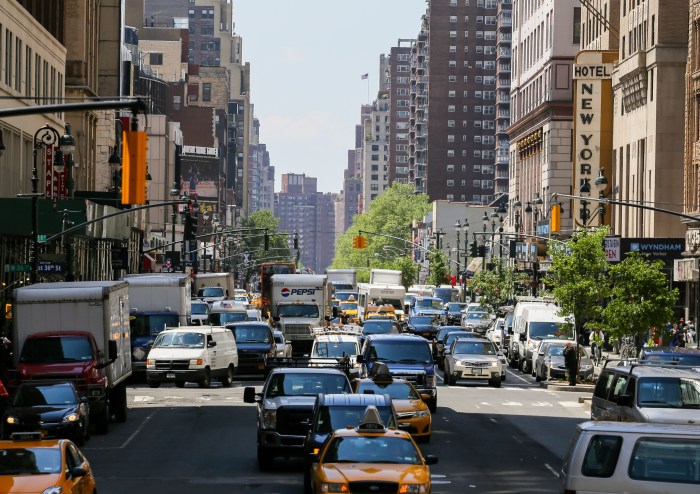
MTA chairman Joseph Lhota resigned on Friday after nearly a year and a half at the helm of the city’s transit authority.
Lhota was appointed to the position by Gov. Andrew M. Cuomo in June 2017. It was his second time in the role, having served from October 2011 to December 2012.
Going by the MTA’s bylaws, vice chairman Fernando Ferrer will become acting chairman. Cuomo said his administration will choose a replacement, which will require state Senate approval when that body returns in January.
Reflecting on his most recent tour in the position, Lhota said he was proud of the Subway Action Plan he implemented to stem the subway’s rapid decline in service.
Joe Lhota has dedicated decades of his life to public service culminating in two tours of duty at the helm of the MTA. He stabilized the subway system, appointed a new leadership structure, and led with a steady hand during some of the agency’s most challenging moments.
— Andrew Cuomo (@NYGovCuomo) November 9, 2018
In short, Joe demonstrated time and again why he was the right person for the job. I am deeply grateful for his service to the State of New York.
— Andrew Cuomo (@NYGovCuomo) November 9, 2018
"In late spring 2017, following a well-documented period of rapid deterioration of transit services, I volunteered to become MTA chairman with the sole purpose of halting the decline of service and stabilizing the system for my fellow New Yorkers," Lhota said in a joint statement with Cuomo. "The plan has produced a 34.8 percent decline in major subway incidents causing delays (a comparison of 9/2017 to 9/2018). In September 2018, the number of total train delays fell to the lowest point since February 2016."
But there is still a "long way to go," in getting subway service to a level that New Yorkers deserve, he added. Lhota closed by thanking MTA workers who operate the system that transports more than 9 million New Yorkers daily.
During his first tenure, Lhota helped the agency bounce back from a nearly $2 billion budget hole it faced the year before he took over, and also from 2012’s superstorm Sandy, which inundated the subway system and the East River tunnels with damaging floodwaters.
In a letter sent to MTA employees, the authority’s leadership vowed that their "relentless focus on our customers remains unchanged," despite Lhota’s departure.
"Thanks to your hard work, the MTA is well-positioned for a renaissance," the letter reads. "New Yorkers recognize the value of reinvestment in our transit infrastructure and the groundwork has been laid for a long-overdue renewal."
Cuomo, meanwhile, lauded Lhota for his public service and dedication to the job.
"He stabilized the subway system, appointed a new leadership structure, and led with a steady hand during some of the agency’s most challenging moments," Cuomo said in the joint statement. "In short, Joe demonstrated time and again why he was the right person for the job. I am deeply grateful for his service to the State of New York."
Mayor Bill de Blasio, who publiclyfeuded with Lhota over MTA funding, also commented on the departure in less flattering terms during an interview on WNYC Friday morning.
"I wish him well and I think other folks there can do the job," de Blasio said.
At the October MTA board meeting, Lhota told reporters he had no plans to resign.
"My term ends on June 10, 2021," he said. "That’s my term."
Lhota’s tenure with the MTA has not been without controversy. Watchdog groups were critical of his decision to remain in his paid position as a vice president of NYU Langone Hospitaland as director on the board of the Madison Square Garden Company, arguing that both posed clear conflicts of interest.
Lhota, an investment banker by trade, has said he delegated chief executive officer duties at the MTA to keep such outside arraignments. On Friday, he said that his return in June 2017 had been "with the understanding that I would maintain my private sector positions and delegate day-to-day responsibility to a new team."
John Kaehny,the executive director and a founding board member of Reinvent Albany, said on Friday he hopes the State Senate, MTA and Cuomo take the “opportunity reset the ethics at the MTA.”
“The MTA has a significant credibility problem . . . and part of that problem is because the governor and Lhota have been playing political games with [Lhota’s] job,” Kaehny said, warning that it could be difficult for the authority to make pitches for new funding unless such issues are addressed. “As long as the MTA is highly, highly politicized the numbers and needs it produces are not going to be credible."
Lhota’s resignation opens the door for a new leader who can "devote all their attention" to fixing the ailing public transit system, Nick Sifuentes, executive director of the Tri-State Transportation Campaign, said.
"The first and most important job for any new chair of the MTA is to lead the fight in Albany to fix our subways, buses, and commuter rail," Sifuentes said. "This is the yardstick by which chairman Lhota’s replacement will be judged: can they win the fight for the funding they need to make our region’s public transit a world leader again?"
John Raskin, executive director of the Riders Alliance, thanked Lhota for his service on Friday but also called on Cuomo to appoint a "capable chair" and urged the governor to allocate funding for the MTA’s Fast Forward plan to fix the subways.
With Vincent Barone and Newsday
































